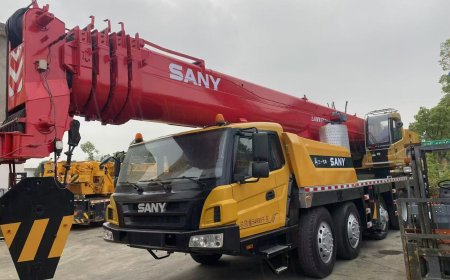Commercial Construction Estimating: Precision for Project Success
Commercial construction estimating is a cornerstone of successful project planning, enabling contractors to deliver large-scale projects on time and within budget. This process involves calculating the costs of materials, labor, equipment, and overhead for commercial projects such as office buildings, retail centers, and industrial facilities. By providing accurate construction cost estimates and quantity takeoffs, these services help contractors minimize risks, reduce waste, and submit competitive bids. This article explores the importance of commercial construction estimating, its processes, benefits, and the transformative role of technology in the industry.

is a cornerstone of successful project planning, enabling contractors to deliver large-scale projects on time and within budget. This process involves calculating the costs of materials, labor, equipment, and overhead for commercial projects such as office buildings, retail centers, and industrial facilities. By providing accurateconstruction cost estimates and quantity takeoffs, these services help contractors minimize risks, reduce waste, and submit competitive bids. This article explores the importance of commercial construction estimating, its processes, benefits, and the transformative role of technology in the industry.
What Is Commercial Construction Estimating?
Commercial construction estimating involves forecasting the total cost of constructing commercial structures, including materials like concrete, steel, drywall, and lumber, as well as labor, equipment, permits, and indirect costs like overhead and profit margins. Unlike residential estimating, commercial projects are larger, more complex, and subject to stricter regulations, requiring specialized expertise in reading blueprints, understanding building codes, and managing multifaceted project requirements.
The goal is to produce a detailed construction cost estimate that includes a quantity takeoff, specifying the amounts and types of materials needed, and a cost breakdown, detailing labor, equipment, and other expenses. Professional construction estimators ensure accuracy, helping contractors avoid overbidding, which loses contracts, or underbidding, which erodes profitability.
Why Commercial Construction Estimating Matters
Commercial projects often involve significant investments, tight schedules, and multiple stakeholders, making accurate estimating critical. Errors can lead to financial losses, delays, and reputational damage. Heres why commercial construction estimating is essential:
-
Cost Control: Overestimating inflates budgets, making bids uncompetitive, while underestimating leads to cost overruns. Precise construction cost estimates ensure financial efficiency.
-
Risk Mitigation: Accurate estimates account for contingencies, market fluctuations, and unforeseen challenges, reducing project risks.
-
Time Efficiency: Detailed quantity takeoffs ensure timely material procurement, preventing delays due to shortages or mismanaged resources.
-
Competitive Bidding: Reliable estimates enable contractors to submit competitive bids, increasing win rates while maintaining profitability.
-
Stakeholder Confidence: Transparent, accurate estimates build trust with clients, developers, and investors, minimizing disputes and fostering strong relationships.
The Commercial Construction Estimating Process
The construction estimating process is systematic, requiring expertise and attention to detail. Key steps include:
-
Blueprint Analysis: Estimators review architectural, structural, and MEP (mechanical, electrical, plumbing) drawings to identify material and labor requirements for elements like foundations, framing, and finishes.
-
Quantity Takeoff: Materials such as concrete, steel, drywall, and flooring are quantified based on dimensions and specifications. For example, concrete may be measured in cubic yards, while drywall is calculated in square feet.
-
Labor Estimation: Labor costs are determined based on project complexity, such as high-rise construction or specialized installations, factoring in crew sizes and hours.
-
Equipment and Overhead Costs: Estimators include costs for equipment rentals (e.g., cranes, scaffolding) and indirect expenses like permits, insurance, and site management.
-
Waste and Contingency Factors: A waste factor (5-15%) accounts for material losses, while a contingency (5-10%) covers unforeseen issues, ensuring sufficient resources.
-
Cost Analysis: Using current market rates, estimators provide a construction cost estimate, often presented in Excel or PDF, detailing material, labor, and overhead costs.
-
Quality Assurance: Estimates are cross-checked against plans and codes, ensuring accuracy and compliance.
This process is typically organized by project phases (e.g., foundation, structural, finishes), aligning with construction workflows.
Technologys Role in Commercial Construction Estimating
Technology has revolutionized commercial construction estimating, enhancing accuracy and efficiency. Construction estimating software like PlanSwift, ProEst, and Bluebeam Revu enables digital takeoffs, reducing manual errors. Estimators upload blueprints, measure quantities, and generate quantity takeoffs quickly.
AI-powered estimating tools, such as Togal.AI or Esticom, automate calculations and measurements, often completing takeoffs in minutes. These platforms integrate with supplier databases for real-time pricing, addressing material cost fluctuations. Building Information Modeling (BIM) software, like Revit, allows 3D visualization, improving estimate accuracy for complex projects. Cloud-based collaboration tools enable real-time sharing of estimates, enhancing coordination among estimators, contractors, and stakeholders.
Benefits of Outsourcing Commercial Construction Estimating
Many contractors outsource commercial construction estimating to specialized firms for their expertise and efficiency. Key advantages include:
-
Specialized Knowledge: Professional construction estimators are skilled in commercial project requirements, building codes, and material specifications, ensuring compliance.
-
Time Savings: Outsourcing frees contractors to focus on bidding, project management, and client relations, with estimates delivered in 24-48 hours for standard projects.
-
Cost Efficiency: In-house estimating requires salaries and software licenses. Outsourcing offers expert services at a lower, project-based cost.
-
Accuracy: Certified estimators use advanced tools to deliver precise quantity takeoffs, reducing errors and boosting bid competitiveness.
-
Scalability: Outsourcing firms handle projects of any scale, from retail renovations to large industrial complexes, tailoring services to specific needs.
Choosing a Commercial Construction Estimating Service Provider
Selecting a reliable construction estimating service provider is critical. Consider these factors:
-
Experience: Choose a provider with expertise in commercial projects, such as office buildings or warehouses.
-
Technology: Ensure they use modern construction estimating software and BIM tools for accuracy and efficiency.
-
Customization: Look for tailored services, such as estimates for specific trades (e.g., drywall estimating, lumber takeoff) or MEP systems.
-
Turnaround Time: Select firms with fast delivery and responsive support to meet tight deadlines.
-
Reputation: Review testimonials and bid success rates (e.g., 95% win-bid ratio) for quality assurance.
Challenges in Commercial Construction Estimating
Commercial construction estimating faces challenges, including:
-
Market Volatility: Fluctuating material and labor costs require real-time updates to maintain accuracy.
-
Project Complexity: Large-scale projects with multiple trades, such as HVAC or electrical, increase estimating complexity.
-
Incomplete Plans: Unclear or evolving blueprints can lead to inaccuracies, necessitating thorough analysis and stakeholder communication.
Professional estimators address these through expertise, advanced software, and collaboration with contractors and suppliers.
Conclusion
Commercial construction estimating is essential for delivering cost-effective, timely, and high-quality projects. By providing accurate construction cost estimates and quantity takeoffs, these services help contractors manage budgets, reduce waste, and win competitive bids. The integration of construction estimating software, AI-powered tools, and BIM has made estimating faster and more reliable, transforming the industry. Whether constructing a retail center or an industrial facility, partnering with a professional construction estimating service provider ensures project success. For contractors seeking to optimize operations and enhance profitability, outsourcing commercial construction estimating is a strategic investment.










































